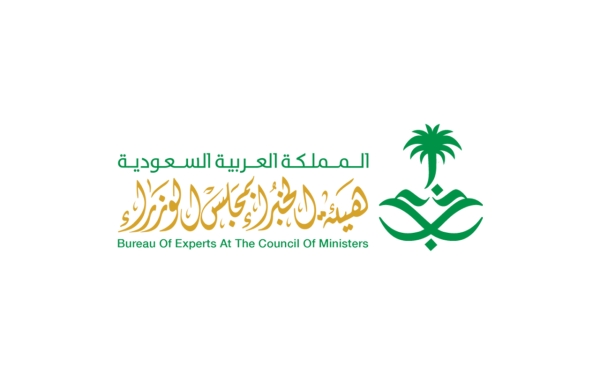

The Family Law in the Kingdom of Saudi Arabia is a recently introduced legal framework that governs family relations. It covers matters such as betrothal, marriage, dowry, spousal rights, financial obligations, separation, lineage, custody, wills, inheritance, guardianship, and trusteeship.
The issuance of the Family Law in Saudi Arabia
The Family Law was enacted in the Kingdom on March 8, 2022, as part of a suite of four draft laws aimed at enhancing the specialized legislative framework. It is the second of these laws to be issued, following the announcement by Crown Prince and Prime Minister, His Royal Highness Prince Mohammed Bin Salman Bin Abdulaziz Al Saud, in 2021. In addition to the Family Law, the other draft laws include the Evidence Law, the Civil Transactions Law, and the Penal Code of Discretionary Sanctions.
This Family Law is rooted in the principles of Islamic Sharia, designed to align with contemporary legal trends and international judicial practices. It aims to respond to societal changes and foster family stability, which is vital for societal cohesion. The law seeks to elevate the status of families and children while regulating the discretionary powers of judges to ensure consistency in judicial rulings.
The Family Law aims to protect human rights, promote family stability, empower women, and safeguard rights. It provides a comprehensive framework for addressing issues faced by families and women, with detailed provisions on family matters.
The law sets the minimum marriage age at eighteen, adopts modern methods for establishing lineage, guarantees women's rights to maintenance from their husbands regardless of their financial status, preserves children’s custody rights, and ensures that these rights are not compromised in cases of spousal separation.
Contents of the Family Law in Saudi Arabia
The Family Law is comprised of 252 articles, organized into eight parts, each of which is further divided into chapters detailing family issues. The first chapter addresses marriage, covering chapters: Betrothal, general provisions of marriage, the elements and conditions of the marriage contract, and the rights of spouses. The second part discusses the effects of the marriage contract, including financial support and paternity. The third part focuses on the separation of spouses, covering general provisions for separation, divorce, khul', and dissolution of marriage contract. The fourth part outlines the effects of separation of spouses, including the Iddah and custody. The fifth part deals with trusteeship and guardianship, addressing general provisions of trusteeship and guardianship, the trustee, court-appointed guardian, and the actions of trustee and court-appointed guardian, as well as absent and missing persons. The sixth part examines the will, including its general provisions, elements and conditions, and nullification of the will. Part seven elaborates on estate and inheritance, covering general provisions on estate and inheritance, inheritance of heirs by Fardh, exclusion, Ta’sib, decrease (‘Awl), and redistribution (Radd), inheritance of distant kindred, and inheritance of missing persons, unborn children, and disavowed children. Finally, part eight provides the concluding provisions.
Goals of the Family Law in Saudi Arabia
The Family Law governs the judge’s discretionary authority to reduce inconsistencies in court rulings, safeguard family stability, enhance the well-being of families and children, define the relationships between family members, and ensure the protection of their rights.
Problems addressed by the Family Law in Saudi Arabia
The Family Law addressed several issues that affected families and women, providing clearer regulations on family matters, including:
- Financial support: The law clarified that a wealthy wife is entitled to financial support from her husband, a provision that was previously ambiguous. Financial support covers food, clothing, housing, basic needs, and other legally required support. For individuals with unknown parents, the state is responsible for their financial support unless a donor provides it.
- Documenting facts: The law introduced a mandatory timeframe for the husband to document divorce. It also required compensation for the wife if the husband failed to document the divorce or reconciliation, or if he neglected to inform her. Previously, husbands were not obligated to document divorces, often leaving women uncertain about their marital status.
Amendments to the law granted women the right to dissolve a marriage contract unilaterally under certain conditions. Women were also empowered to document divorces and reconciliations, even without the husband's consent.
- Custody: The law prioritized the best interests of the child in custody decisions, ensuring children's rights were safeguarded and preventing parents from using custody as a bargaining tool. Previously, the order of custody entitlement often varied, especially after the child turned seven.
Provisions of the Family Law in Saudi Arabia
The Family Law in the Kingdom emphasizes that those responsible for enforcing its provisions must uphold the confidentiality of any information they access through their work, ensuring the protection of family sanctity and privacy. The law uses the Hijri calendar for the periods it specifies. Its provisions apply to cases where no final judgments were issued prior to its enforcement. However, rulings and decisions made before the law came into effect remain valid under the regulations that were in force at the time. For matters not addressed by the law, the provisions of Islamic Sharia that best align with its principles will apply.
Related quizzes
Related articles

